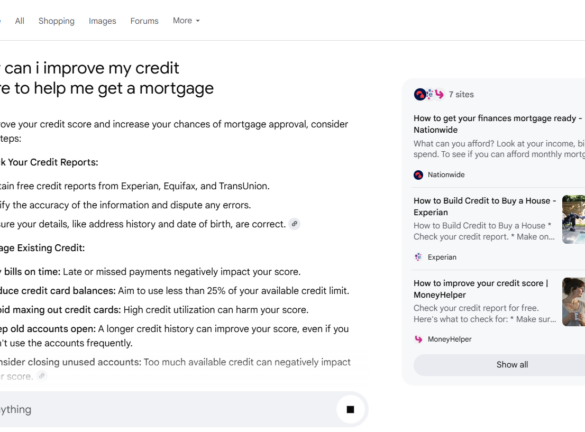
3 Common Factors People Overlook When Carrying Out Keyword Research
Keyword research is the skeleton of an SEO marketing strategy. It is like the map that guides our organic strategies, and without it we wouldn’t know where to start! But there are some common factors that are often overlooked by marketers when carrying out keyword research. In this article I will dive into these and learn how we can optimise our keyword strategies for organic growth.
Competitor Analysis
Identifying and analysing your SEO competitors’ keyword strategies can offer valuable insights and highlight gaps in your own approach. Carrying out ‘deep dives’ into the strategy that your competitors are using and subsequently comparing it to your own site can give you all the insights you need in understanding what the algorithms are ranking and what you can do better to rank higher on the SERPs. Marketers often overlook in-depth competitor and SERP analysis, missing the chance to refine their keyword strategies.
Here’s how to leverage competitor analysis effectively:
Identify your competitors: Use tools like Ahrefs and SEMrush to identify your top SEO competitors. You can also search specific keywords on the SERPs that you want to target and see who is ranking for those terms.
Content gaps: As well as looking for what your competitors are ranking for, also look for what they are not ranking for, and not covering in their content. This will help you to identify opportunities to create unique content that fills those gaps, giving you a competitive advantage and attracting an audience that your competitors may be missing.
Backlink opportunities: Identify which keywords are driving backlinks to your competitors and develop keyword strategies that will attract similar links. For example, you can create high-quality content around your keywords list through guides, articles, blog posts, or infographics, to encourage other websites to link to your content naturally.
By understanding where your competitors are effective, and not-so-effective, you can adapt and improve your keyword strategy to gain a competitive edge.
Long-tail Keywords
Long-tail keywords are phrases or keywords that are more specific to a particular need. They are usually often less-commonly searched. However, they can have higher conversion rates as opposed to short-tail keywords, because the needs of the audience are more targeted.
Targeted Traffic: Long-tail keywords often attract more of a niche audience that have a specific need, and so, they are closer to the point of conversion when making their search.
Less Competition: It is often easier to rank for long-tail keywords because fewer websites target them. This enables businesses to more efficiently target niche audiences and improve their rankings with less effort, as opposed to competing with broad keywords that often have high competition.
Voice Search Optimization: With the rise of voice search, long-tail keywords that mirror natural language queries are becoming more crucial.
As an example, a user may search for ‘marketing agencies’, which is a short-tail query which would most likely offer a broad range of options on the SERPs. However, a user searching for ‘best marketing agencies for financial services companies’ would be a long-tail keyword. The SERPs would be more likely to provide marketing agencies that suit the specific needs of the user, thus leading to a higher conversion rate, by attracting a niche audience.
Continuous Monitoring and Adaptation
Keyword research is not just a one-time process in an effective marketing strategy. An effective keyword strategy requires ongoing monitoring and adaptation to fit the ever-changing trends, user-behaviours and market dynamics. Often, organic marketers overlook the importance of regularly updating their keyword list and content strategies to evolve with the landscape of the industry. Here’s how to keep your keyword strategy dynamic:
- Regular Audits: Conduct keyword audits every so often to identify new opportunities and discard keywords that are underperforming. It is recommended to undertake a keyword audit at least quarterly.
- Trend Analysis: Use search analytics tools and platforms to monitor emerging search trends and seasonal variations.
- Content Optimisation: Regularly update and optimize existing content to reflect current keyword data and search intent.
- Performance Metrics: Use performance tracking tools and platforms to continuously analyse and understand what’s working and what needs adjustment.
By regularly revisiting these steps to monitor and adapt your keyword strategy, analyse your competitors, and update your keyword list, you will stay ahead of the curve and maintain a well-rounded strategy. This will help you to avoid many of the pitfalls that marketers often overlook.
If you are interested in ROAST’s SEO services, please get in touch here, or to stay informed, please sign up for our newsletter.





